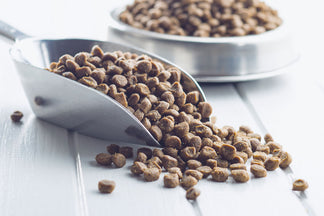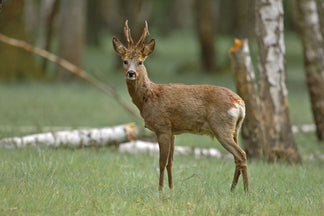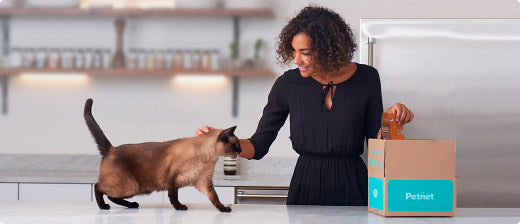The next ingredient we’re covering in our ongoing series on Healthy Ingredients for Your Pet is salmon. For humans, salmon is recognized and promoted as a superfood, so it’s logical that it is great for your pets too.
What is Salmon?
Salmon belongs to the Salmonidae fish family along with char, trout and whitefish. Their native habitat is the cold waters of the North Atlantic and the Pacific Northwest. Salmon are also widely ‘farmed’ or grown and harvested from fish farms. They have pink flesh and the largest salmon ever caught was 126 lbs.
Why is salmon in pet food?
Salmon has great benefits for your pets. It is an oily fish, but is low in saturated fats and very high in protein, omega-3 fatty acids, and vitamin D – all good for your pet. Salmon and other fish also score high in amino acids which are critical to maintain healthy coat and skin.
The omega-3 fatty acids found in salmon fortify your pet’s immune system and promote brain health. They also aid in controlling arthritis pain and fighting off high cholesterol.
You might also see “salmon oil” listed in the ingredients of your pet’s food. While not as good as ‘whole’ salmon, salmon oil does contain some of the benefits.
Are there any risks to feeding your pet salmon?
Cat owners know their cats love fish whether salmon, tuna or whatever and you may be tempted to just open a can of it for their meals. While that piece of sautéed salmon or a canned salmon will probably make them happy, it does not provide all of the essential vitamins and minerals your cat needs. In particular, salmon contains only small amounts of Taurine, an essential amino acid for cats. Taurine deficiency can cause blindness so if you do feed them human-grade canned fish, be sure they are getting proper amounts of Taurine from other sources.
As with any fatty food, too much of a good thing may cause stomach upset or diarrhea and raw salmon can carry a parasite, so be sure it is cooked. If feeding raw salmon, you also need to be careful of bones as they can catch in your pets throat.
Farmed salmon may contain high levels of dioxin which is why wild salmon is recommended.
Interesting facts about salmon:
Salmon are anadromous which means they spawn and hatch their eggs in freshwater but live in saltwater. You’ve probably seen stories of salmon swimming upstream to return to their original spawning ground. This homing behavior is said to be based on odors.
“Atlantic salmon” sold in the U.S. are all farm-raised. Naturally spawning Atlantic salmon can only be found in Maine and this small population is at a very high risk of extinction.
Salmon can travel up to 3500 miles to spawn and they do not eat while traveling upstream to spawn.
A sampling of pet foods that contain salmon:
- pawTree – Real Salmon & Potato
- Artemis – Salmon and Garbonzo Beans
- Fussie Cat – Salmon & Chicken
Sources:
https://en.wikipedia.org/wiki/Salmon
http://canigivemydog.com/salmon
http://www.akc.org/content/health/articles/can-dogs-eat-salmon/
https://pets.thenest.com/real-tuna-salmon-bad-cats-7003.html
https://www.dog-care-knowledge.com/salmon-oil-for-dogs.html
https://www.greateratlantic.fisheries.noaa.gov/stories/2015/july/13_who_is_protecting_the_endangered_atlantic_salmon_.html




 Food
Food
 Food
Food
 Food
Food
